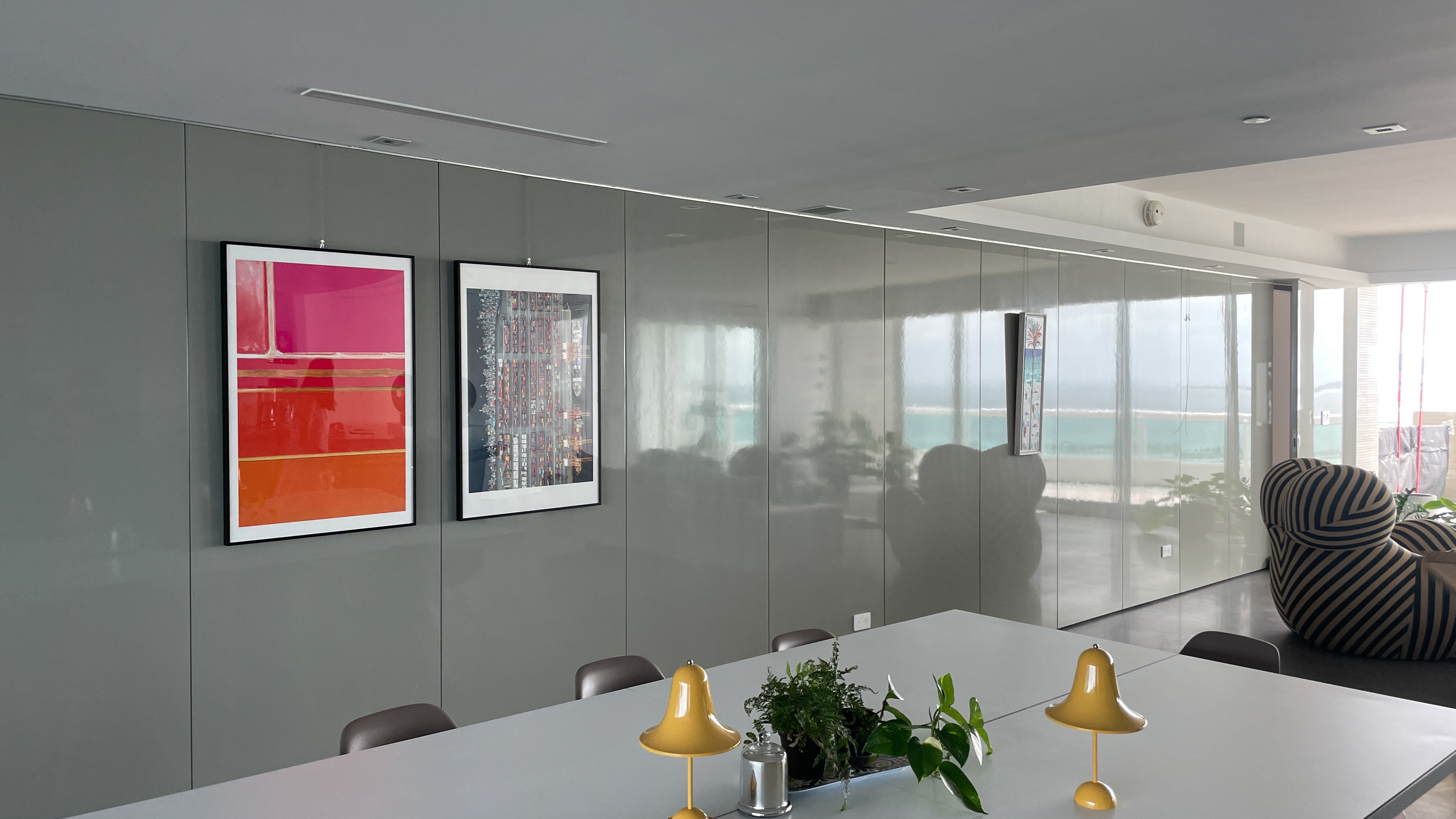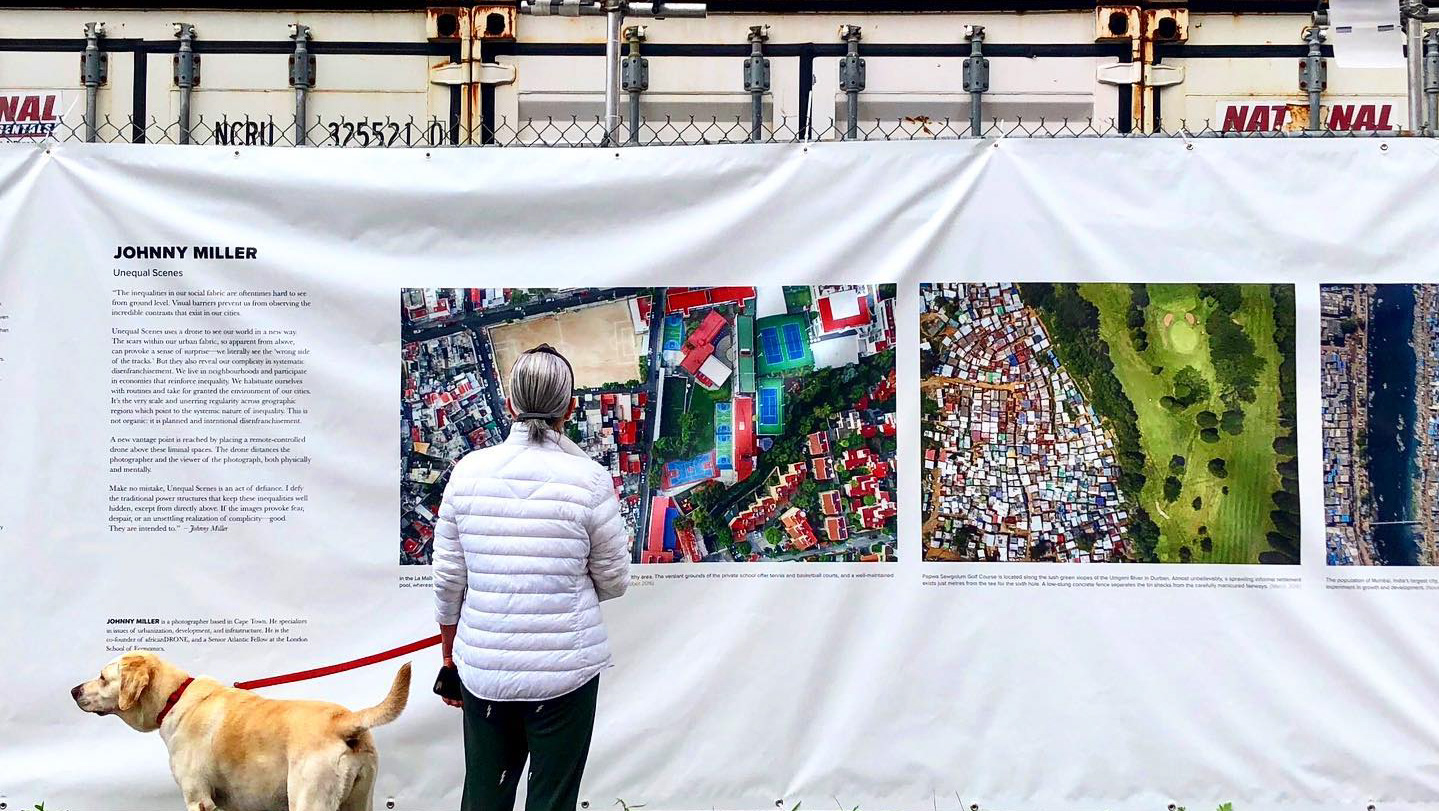Unequal Scenes uses a drone to illustrate inequality across the world through photography. The scars within our urban fabric, so apparent from above, can provoke a sense of surprise…But also reveal our complicity in systematic disenfranchisement.
We live within neighborhoods and participate in economies that reinforce inequality. We habituate ourselves with routines and take for granted the built environment of our cities. The tin shacks and dilapidated buildings are hemmed into neat rows, bounded by the fences, roads, and parks of the wealthiest few.
It’s the very scale and unerring regularity across geographic regions which points to the systemic nature of inequality. This is not organic – this is planned and intentional disenfranchisement.
Photographer
Photo: Felipe Meireles
Johnny Miller is a photographer, filmmaker, drone journalist, artist, Fellow and Founder based in South Africa and the USA. He is interested in exploring transdisciplinary issues related to economics, health and architecture from the ground and from the air. His photographic project Unequal Scenes has garnered widespread praise and been featured in many of the world’s top publications. His photographic artwork has been exhibited at Photo Art Basel, Unseen, and other art markets.
He is currently a Senior Fellow at Code For Africa, an Atlantic Fellow for Social and Economic Equity at the London School of Economics, a BMW Responsible Leader, and a UN-Habitat Champion. He is represented as an artist by Buchkunst Berlin. Johnny is also the co-founder of africanDRONE, a pan-African organization committed to using drones for good. He attended Dickinson College in Pennsylvania, USA, and the University of Cape Town in South Africa.
johnnie.miller@gmail.com
Video / Event Recordings
Publications
Unequal Scenes - Manifesto
Severe economic inequality is largely a consequence of human-enacted policies. Tin shacks in Cape Town are separated from mansions with barbed wire and concrete walls. Millionaires in high-rise aeries in Mumbai gaze down on informal settlements, their roofs covered in blue tarps to keep out the monsoon rains. Pollution-spewing highways belch toxins onto playgrounds in underserved areas of New York City.
Walls, highways and other infrastructure usually keep us from seeing the extent of the problem, usually by design. That always bothered me. By using drones and helicopters for this project, I wanted to peek over those walls, and enter into forbidden liminal territory. For the first time in our history, drones and social media are a cost-effective solution for depicting and then disseminating these separations. It’s hard not to look straight down on the divisions and not have an unsettling realization that we, the people gazing at these scenes, are also complicit.
The scale and regularity of urban structures constructed to separate people, in many different cities and cultures all across the world, points to the systemic nature of inequality. Evidence shows that high levels of inequality are correlated with worse health outcomes, like lower life expectancy, higher rates of heart failure, and higher levels of infant mortality. More equal societies are happier and more cohesive, and to a large degree more prosperous. Countries that are more equal tend to have far more generous, encompassing and egalitarian social systems.
I see these photos as reflecting an intentional disenfranchisement of poor people, but also a catalog of building practices on the cusp of what may well be the last years of the “informal settlement”. Many cities are taking steps to remove informal settlements (or slums, whatever you want to call them, etc), which on the surface seems to be a positive development. The truth is more complicated, as often more “regular” looking homes, at least from above, are a poor indicator of the shape and conditions of the internal units. Moreover, I find a perplexing sense of humanity, and perhaps even resilience, in the “less formal” parts of cities. The struggle to exist near the center of a city, with access to work and transportation and services, and to consider that city “your own”, instead of marginalized on the periphery, is also reflected here.
I enjoy the freedom that aerial photography allows, an expansive sense of travel and distance. There is a beauty in the composition and color of the earth as seen through a rectangular frame, much as the pages of atlases and maps captivated me when I was younger. I hope that the discussions around equity, design, and justice are somewhat furthered by this project, as well capturing some essence of strange beauty in our built environment.
Johnny Miller, Ithaca NY, USA, September 2022



